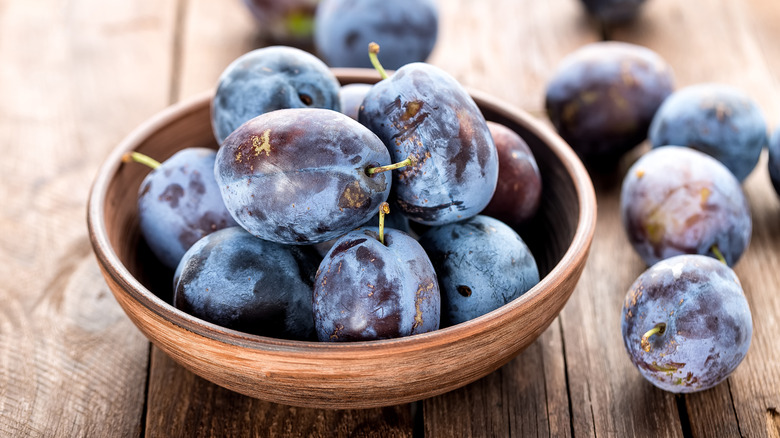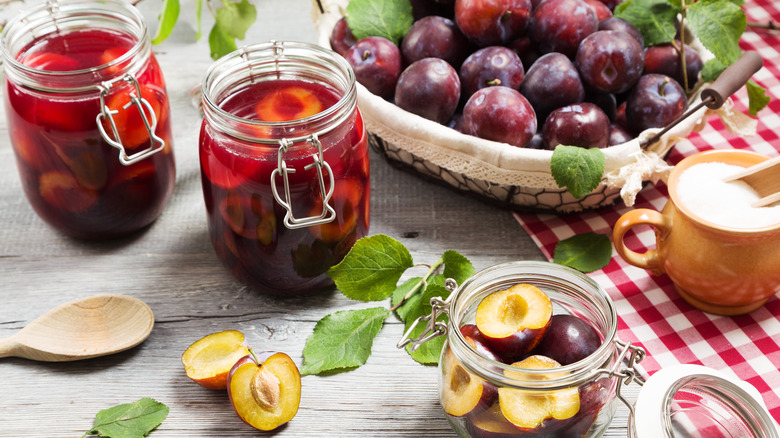The Best Way To Store Plums So They Stay Fresh Longer
From wintery cobblers to fragrant pies to rich cocktails (or mocktails), plums are an oft-forgotten but flavorful fruit. There are many different plum varieties, each with its own flavor, but no matter the type you'll want to store it properly to avoid food waste and eating over- or under-ripe plums.
First, be sure you know what you're buying — ripeness has an effect on how to store a plum. If the plum is ripe, it will be slightly squishy — but not too mushy or hard — with a consistent dark color all over. For ripened plums, it's best to store them in an airtight plastic bag or container in the crisping drawer until ready to eat. If stored this way, plums can be kept anywhere from three to seven days. If the plum is not quite ready when you buy it, it will have no "give" and may show hues of green. To ripen these, place the plum on the counter in a paper bag at room temperature for two to three days, or until ripe. Once it's ready, treat it as you would a normal ripe plum.
If you do suspect a bad plum, check its weight and smell: Spoiled plums smell sour or generally bad and are much lighter than expected (as the water content is dropping). In general, watch out for blemishes that could ruin a plum's shelf life, and if you're ever concerned, trust your gut.
Long-term storage for an out-of-season fruit
Plum season is between May and October, with peak season falling in the middle months. If you want to save plums for later use, consider freezing them. To do this, start by washing, pitting, and cutting your plums into quarters. Then, place them into a freeze safe container in a single layer with space between each one. Once they have solidified individually, transfer them to an airtight freezer-safe bag or container. Frozen plums can last anywhere from eight to 12 months. To thaw, either place a few on a counter at room temperature until ready or submerge the whole bag in a cool water bath, moving the plums periodically.
Another way to store plums is canning them. Start by washing and pitting the plums (which should be at peak ripeness). Next, decide how you want to preserve them; you can either hot or raw pack them. To hot pack (recommended to keep the plum's shape), boil them in whatever canning liquid you use (water, syrup, juice), let them sit off the heat for half an hour, then pour into the cans, leaving some headspace. To raw pack, simply prepare them how you want (whole with small holes to allow for expansion or halved) and combine in the jar with the canning liquid. According to the National Center for Home Food Preservation, canned fruits can last up to a year if stored properly.

